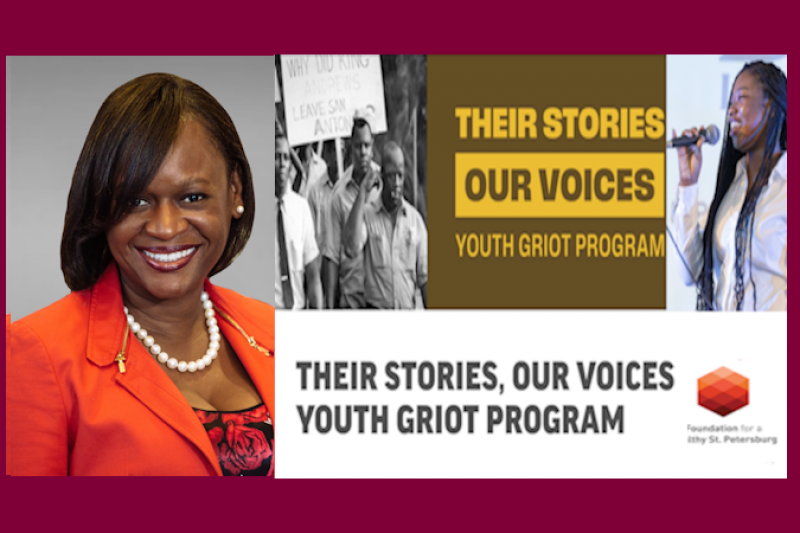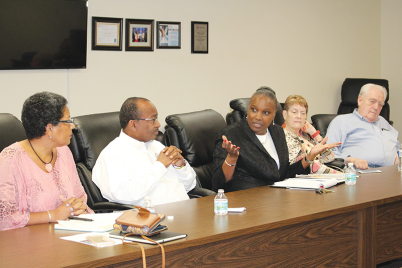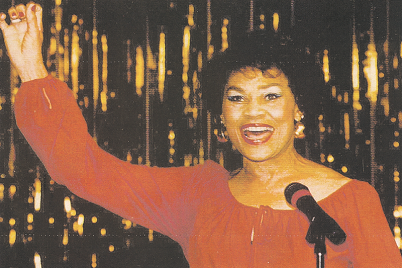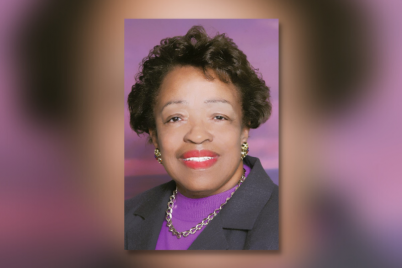By Dr. Kanika Tomalin | President and CEO, The Foundation for a Healthy St. Petersburg
The close of a year invites reflection and review. Marking the passage of time and new beginnings offers a natural opportunity to reflect on all we’ve experienced, achieved, and learned over the past 12 months.
As we look back at the past and prepare for the future, I want to share with you a new program that beautifully intersects our community’s rich past with its promising future. This summer, the Foundation for a Healthy St. Petersburg is launching the Their Stories Our Voices Youth Griot Program. Designed for local high school students, the program aims to preserve our rich history in St. Petersburg by carrying it forward to the next generation.
Under the guidance of Ms. Gwendolyn Reese, a group of up to 20 local students will come together at the Foundation this summer to learn about local Black history-makers, celebrating our community’s moments of triumph while also honoring our times of challenge. When possible, students will hear directly from those who lived these moments and histories first-hand. Reese serves as the Foundation’s Griot-in-Residence. With this new program, she will train our community’s next generation of griots, preserving our stories, history, and culture for generations to come.
I’ve said before that we are our stories. However, our stories are not equally told, equally shared, or equally celebrated. From this disparity (and others), inequity is born. It was Dr. Carter G. Woodson, the father of Black history, who said, “If a race has no history, if it has no worthwhile tradition, it becomes a negligible factor in the thought of the world, and it stands in danger of being exterminated.”
Not on our watch.
As our great City continues to develop and grow, it will no doubt continue to change. As we consider what is worthy of preservation and perpetuation, as we decide as a community which corners are sacred and which can be redeveloped without regard, we must know our history. We must know what the homes, school, churches, and centers of community and culture meant to the trailblazers before us who built them. And we must hold in our imaginations what they could mean to the souls yet born who may one day occupy and honor them.
At the Foundation, we believe in telling our stories because we believe in the power they hold – to change minds, to change hearts, and to change the very trajectory of our community itself. They are our windows into experiences beyond our own. While our lives are limited, bound by time and circumstance, stories grant us access to so much more. They can foster empathy and pride, transmit culture, influence our thinking, fill us with hope or a sense of responsibility, and beyond.
As we wind down the year and prepare for our next trip around the sun, know that the new year will include the honoring and telling of our local stories. Starting in the summer of 2025 and continuing through the next school year, a group of young scholars will be learning from and about the trailblazers who came before them. These students will deepen their knowledge of history while they strengthen their own storytelling and communication skills. They’ll ask questions, search for answers, and create content that will be showcased in the Foundation’s Center for Health Equity for all to enjoy.
They will help to write, tell, and preserve our stories, in the process becoming part of our stories for generations to come. We’re so grateful to the trailblazers, historians, teachers, families, and creators who will touch this program, and we can’t wait to share more with you about this work in 2025. On behalf of the Foundation for a Healthy St. Pete, I wish you a happy, healthy, and joyful new year.
 Dr. Kanika Tomalin is the President and Chief Executive Officer of the Foundation for a Healthy St. Petersburg. In this role, she leads, directs, and integrates all aspects of the Foundation’s internal and external activities and initiatives. Working closely with the Foundation team, Dr. Tomalin creates and executes the Foundation’s strategic plan—overseeing grantmaking, strategic initiatives, and the Center for Health Equity. She guides the organization as a steward of the community’s resources, consistently reporting back to the community and ensuring decisions and plans of action are mission-aligned and based in equity.
Dr. Kanika Tomalin is the President and Chief Executive Officer of the Foundation for a Healthy St. Petersburg. In this role, she leads, directs, and integrates all aspects of the Foundation’s internal and external activities and initiatives. Working closely with the Foundation team, Dr. Tomalin creates and executes the Foundation’s strategic plan—overseeing grantmaking, strategic initiatives, and the Center for Health Equity. She guides the organization as a steward of the community’s resources, consistently reporting back to the community and ensuring decisions and plans of action are mission-aligned and based in equity.




